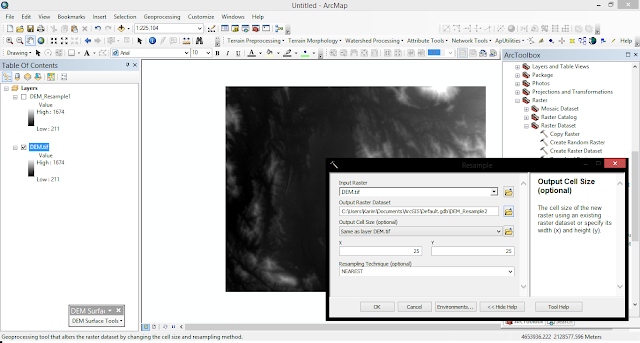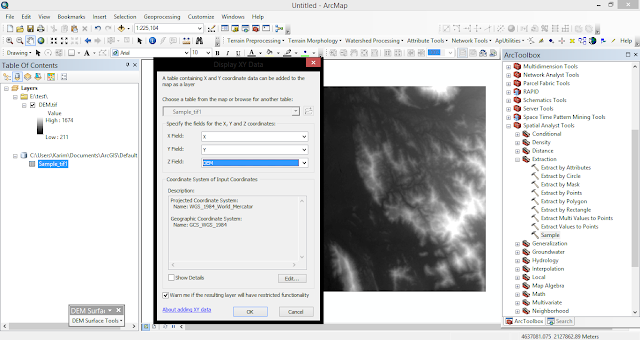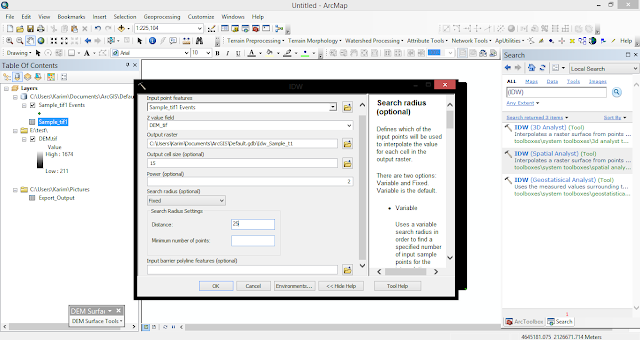GATE END BOX
It is used to supply 550 volt AC to the coal cutting machine working at coal faces. The maximum distance of gate end box from the machine is 100 meter. For putting ON, OFF the switch at 550 volt on the machine itself may produce a spark which is turn may ignite firedamp or coal dust. Hence to avoid this there is pilot switch on the coal cutting machine which works at 30 volts. When this switch is operated at the CCM, it operates the main switch at gate end box to supply power to the CCM.
The gate end box is always placed in the fresh air, so that there is no danger of gas on coal dust explosion due to spark. The gate end box is used to supply the power to the CCM trough a five core cable (three power core, one pilot core & one earth in core). The main switch of the CCM which works on 550 volts is placed at the gate end box & it is operated by switch which is located at 30 volts, hence CCM is known as “Remote Control Machine”.
How Gate End Box is Made Flame Proof?
A flame proof enclosure is one which will withstand without injury & explosion of gas that may occur within it & will prevent the transmission of flame.
In fact it would be impossible to design the gas tight enclosure hence the alternative is therefore to construct it so that flame coming out from the explosion of gas will not pass outside.
The Requirements of FLP are as follows
1) At joint of enclosure, it should not have gap more than 0.5 mm.
2) IF there is any hole, it must be blocked by a screw etc.
3) It should have sufficient strength.
4) All heads of screw/bolts should be cored.
5) All external circuit conductors must not pass through the casing but must terminate in properly designed terminal box.
Advantages of Remote Control (Gate End Box)
1) Closing & opening of coal cutting machine (CCM) motor is done away from the face which is well ventilated & safe.
2) If the pilot conductors are opening circuited the main conductor automatically trips.
3) If the trailing cable is damaged causing short circuit, the main conductor automatically trips.
4) If the supply fails or flexible cable is removed or the plug are not fully inserted then again main conductor trips.
5) After the insertion of power the coal cutting machine (CCM) motor can’t be started until the starter handle is put back to off position & then to on position.
6) Control on the coal cutting machine (CCM) is simple & easy to operate.
7) Power core is flexible cable is allow only when the coal cutting machine (CCM) is running.
Main Safety Provisions of Gate End Box
1) Overload or short circuit protection.
2) Lower voltage or power failure protection.
3) Earth continuity protection.
4) Earth leakage protection
5) Pilot protection.
6) Flame proof protection.
7) Mechanical protection.
1) Overload or Short Circuit Protection: In case of overloading or short circuiting the coal cutting machine (CCM) will draw more current hence more current flows flow in the power cable & this more current may overheat the motor of coal cutting machine (CCM) which is working at the face, hence it is required that in case of overloading the machine should be trip automatically as shown. The over current flow in the overloading coil L1, L2 & L3 exert an extra force on plunger of dash peat which brakes the pilot circuit at d1 & d2.
Hence the current flows in the coil Y & C1 & C2 are disconnected & again no current flow in the coil Z. hence main conductor is operated to trip the power supply to the machine.
2) Lower Voltage or Power Failure Protection: The pilot circuit is so designed that if the voltage falls below 60% of the normal voltage the coil Y will not generate force to close C1 & C2.
3) Earth Continuity Protection: The pilot circuit is so designed that the machine can’t be started till the earth continuity is established. It is so because pilot circuit is completed through earth in wire only. If the earth in breaks it means no current flow in the pilot circuit or in coil.
4) Earth Leakage Protection: If the flexible cable is partially damaged then the insulation between earth in wire & power cores may get cracked through these cracks the leakage of current takes place & balance of current in the leakage transformer is distributed. Due to this a voltage is induced in the leakage transformer & a force is exerted by the coil by on the plunger to break the pilot circuit at E1 & E2. (If the pilot core is breaks, no current is flown in the coil & C1 & C2are disconnected & no current flow in coil Z)
5) Flame Proof Protection: Whole gate end box is enclosed in flame proof enclosure.
6) Mechanical Protection: The design of gate end box should be such that it should not be opened till the insulator is in off position & all the apparatus are dead & safe.
Why Pilot Circuits are used?
Pilot circuits are used primarily in the interest of safety. Following main considerations are,
1) The use of a pilot circuit make it possible to provide a number of specific and particular safely measured like -
a) Pilot circuit ensures that the machine cannot self start after a power-failure, or tripping, even if the remote control switch has been left in the run position.
b) Makes sure that the machine will not operate if earth continuity is interrupted.
c) The pilot circuit itself fails if it becomes faulty.
d) If anyone inadvertently attempts to disconnect a live trailing cable, the live parts are exposed.
e) In case of emergency the pilot switch is near at hand to switch off the circuit.
f) When the motor is not running the trailing cable is dead.
2) When a circuit carrying heavy current is broken, arcs at the main contacts are pretty severe. It is therefore preferable that this arcing should take place in the gate end rather than at the face where an explosive mixture of fire damp and arc is more likely to occur. Due to the pilot circuit, the circuit can be broken without causing any severe arc at the face, as the safety is ensured by causing arc to take place inside the flameproof enclosure of the gate end.
3) A pilot circuit is designed as an intrinsically safe circuit.
Pilot Circuit: Some standard pilot circuits used in the modern Gate End Box
There will be other contacts in the pilot circuit e.g. those opened by the Earth Fault Relay when there is an earth fault.
How does a Pilot Switch Operate?
To start the machine, the pilot switch is moved to the start position. By doing this the circuit is closed or completed from the secondary winding of the transformer through the operating coil, pilot conductor, pilot switch and the earth core of the trailing cable and back to the transformer. In this start position, as the circuit is closed, the cost of the operating relay is energised, and its contacts close, completing the medium voltage circuit through the contactor operating coil. This coil then closes the three phase main contactor. As soon as the motor has started, the pilot switch moves to the RUN position, bringing the current limiting resistor into circuit. The resistor limits the current flowing in the pilot circuit to a value just sufficient to hold the operating relay closed. To stop the, machine the remote control switch is moved to the stop position. The pilot circuit is then interrupted, and the coil of the operating relay is de-energised. The operating relay therefore, opens, breaking the circuit to the operating coil which allows the three phase contactor to open and then stop the motor.
Earth continuity failure protection:-
In figure seen that the earth core of the trailing provides earth continuity between the machine and the gate end panel. In fact from the figure, we see this earth core is also apart of the pilot circuit. Therefore, if the earth continuity is broken, the pilot circuit is also broken and the three phase contactor opens. Therefore it is not possible to start up the machine as long as the fault continues.
Protection against self-starting:-
Due to a fault in the distribution system or line, or if the power to the area is switched off for any reason, the supply to the transformer and thus to the pilot circuit will cease. As such the operating relay and the contactor will therefore open. The pilot switch may be left in the RUN position, but the machine will not start automatically when the supply is restored. This is because of the fact that though the circuit through the current limiting resistor and the operating relay coil again becomes live, the current passed by the resistor is not sufficient to close the operating relay. The machine in fact cam only start when the operator moves the pilot switch to the START position, as resistor is designed so that it cannot remain in the START position; if the operator releases it in the START position, it moves automatically to RUN position of the pilot switch.
Failure to Safety: Now let us look at fig. when short circuit between the pilot and earth cores in the trailing cable completes the circuit through the operating relay, and if the pilot circuit were not to fail to safety, such a fault would cause the motor to start immediately. In fact, if the motor was running, it would become impossible to stop switch.
However, failure to safety is ensured by the remote rectifier and the operating relay. When the circuit is operating normally, the rectifier at the pilot switch permits only pulses of direct current to flow in the circuit, that is, each positive half-cycle of the alternating supply. The operating relay is designed to operate only on this type of current. In the event of a short circuit between the pilot switch is bypassed and a full alternating current flows in the circuit. The operating relay, due to its higher impedance to a fault wave A.C. current, is de-energised and the contacts of this relay immediately open and break the operating coil circuit so that the motor cannot run.
Protection against disconnecting the live cable is provided by the design of the plugs and sockets used to connect the trailing cable to the machine and to the gate end panel. On each plug the pin of the pilot coil is shorter than those of the other cores. When the plug is withdrawn from the socket, the pilot pin breaks contact before the others. If the cable is live when the plug is withdrawn, the pilot circuit is broken and the main contactor opens while the power cores and the earth core are still connected. Open arcing at the plug when the power lines are broken is, therefore, eliminated and the danger of electric shock is minimised to a very great extent.































